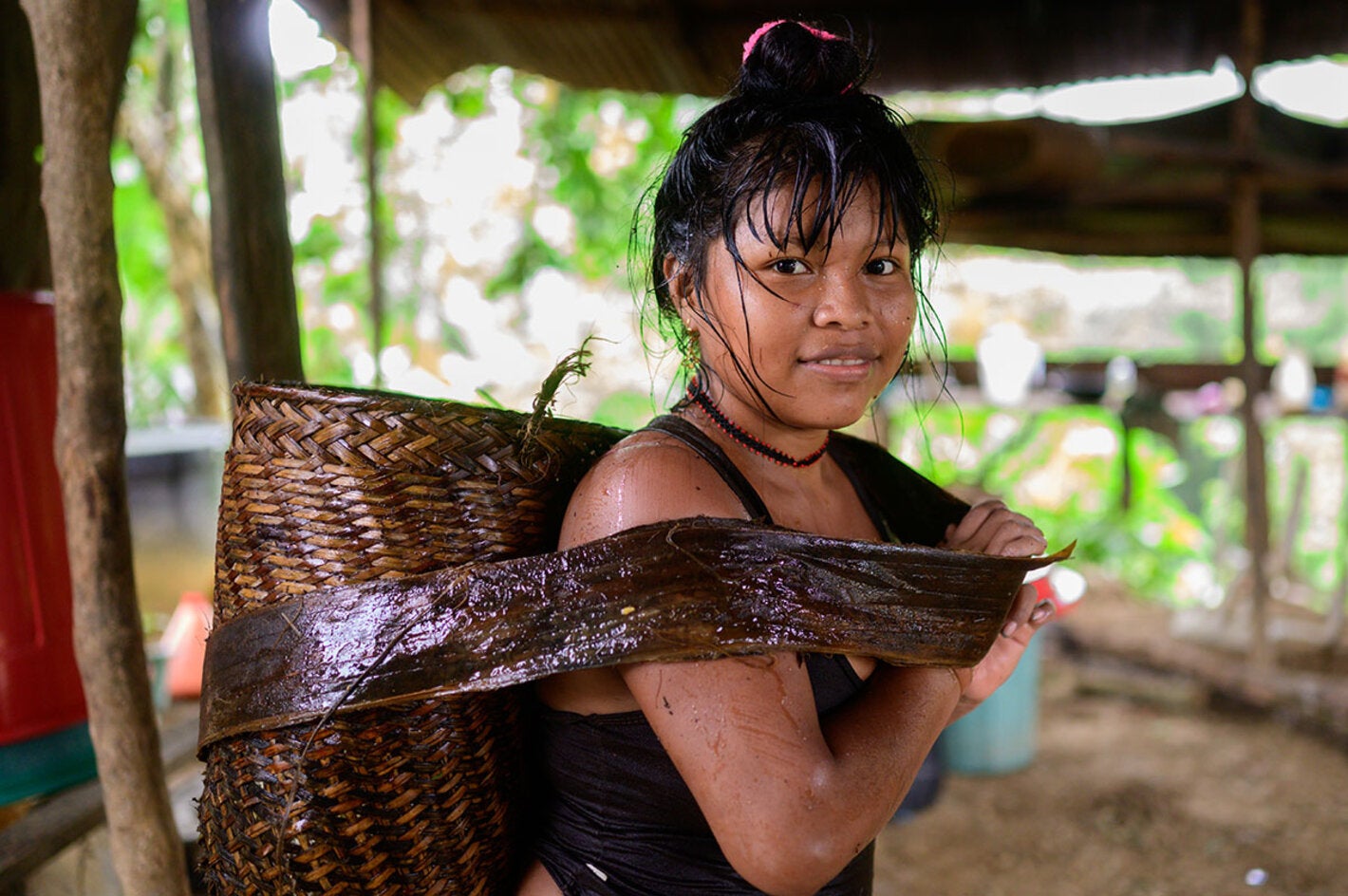
Municipalities in Guatemala and Peru recognized for sustained effort against malaria despite the COVID-19 pandemic.
Washington, DC, November 5, 2021 (PAHO) – The municipalities of La Gomera in Guatemala and Andoas in Peru were today awarded the 2021 Pan American Health Organization (PAHO) Malaria Champions of the Americas prize for their work in achieving sustained decreases in malaria cases in the last four years.
The awards were presented during a PAHO forum to mark Malaria Day in the Americas, which takes place on 6 November. During the virtual event, PAHO and its partners also launched the “Multisectoral Action Guide to End Malaria” for the region of the Americas. The guide – developed by the Roll Back Malaria Initiative and launched globally in June of this year – aims to support countries in working across sectors to eliminate the disease by 2030.
The Malaria Champions of the Americas Award recognizes innovative efforts that significantly contribute towards reducing malaria transmission in communities, countries, or the Region.
La Gomera won the prize for its efforts to ensure access to prompt malaria diagnosis and treatment, contributing to a steady decline in malaria cases and transmission rates. Andoas was cited for its steadfast implementation of the Plan Malaria Cero, including extensive capacity-building among community health workers.
“The work of these local champions is a lesson in resilience. They have demonstrated that despite the challenges of a pandemic, it is possible to move forward with the agenda of malaria elimination,” PAHO Communicable Diseases and Environmental Determinants of Health Director Marcos Espinal said during the event.
The Award is a collaborative effort between PAHO, the United Nations Foundation, the Milken Institute School of Public Health at George Washington University, Johns Hopkins University’s Center for Communication Programs, the Florida International University and the American Society of Tropical Medicine and Health. Forty-two awardees have been conferred the distinction since the prize was first awarded in 2009.
Malaria is a life-threatening disease caused by parasites that are transmitted to people through the bites of infected mosquitoes. In the Americas 138 million people live in areas at risk of malaria.
In the Americas, 18 countries and territories are currently certified as malaria-free by the World Health Organization, the most recent being Argentina, El Salvador and Paraguay.
However, progress in eliminating the disease in the region has been hampered by an overall increase in malaria cases in recent years: 816 000 confirmed cases of malaria were reported in 2019 in the Americas, as compared to 453 000 cases in 2015.
Referring to the latest guidance, Dr. Espinal said countries must consolidate efforts to reduce transmission and eliminate the disease, and that “multisectoral action is a key element in this fight.”
“Eliminating malaria is not just an agenda for the health sector. We have to make sure the problem is solved with the help and participation of multiple partners,” he added.
Malaria Day in the Americas celebrates the achievements of countries in the region that are approaching, or achieving, malaria elimination. The theme for 2021 is “Reaching the zero malaria target”.



